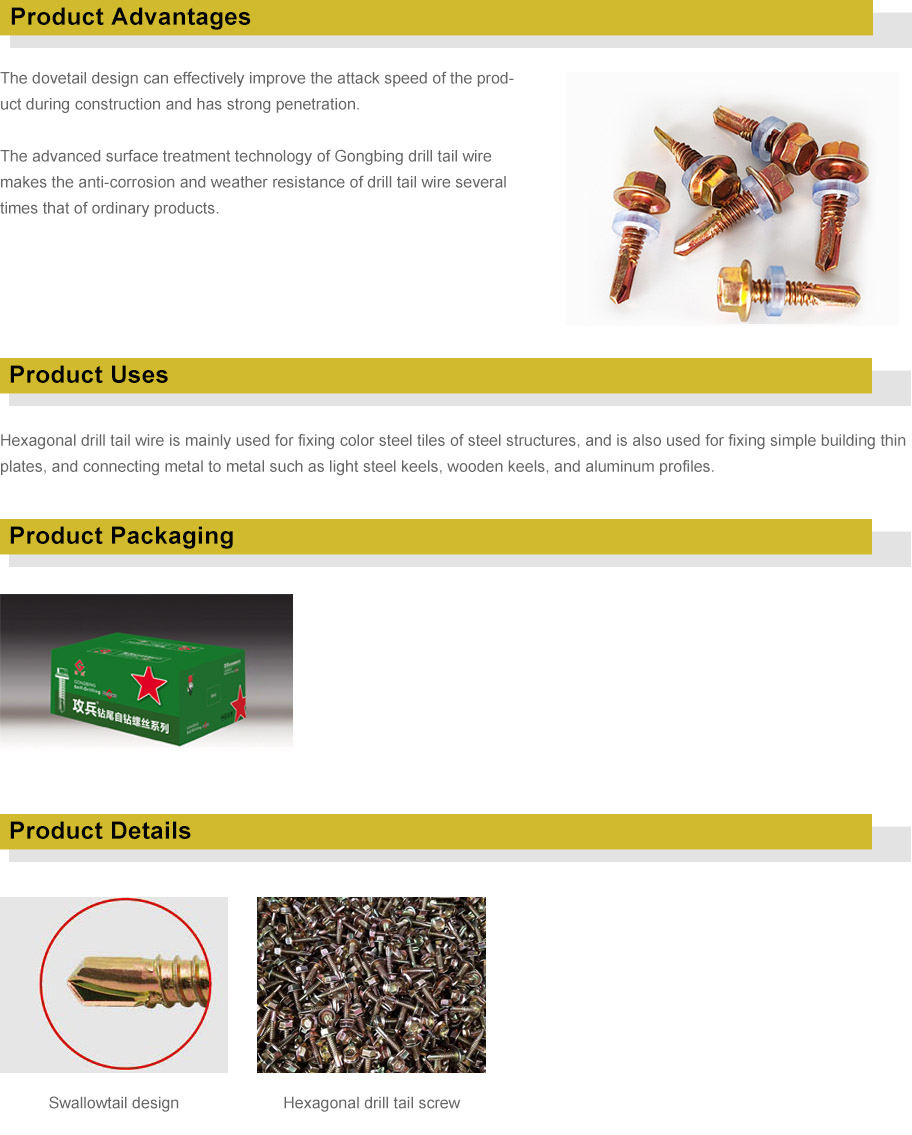drywall screw fine thread
Understanding Drywall Screw Fine Thread A Comprehensive Guide
When it comes to drywall installation, the choice of screws can significantly impact the overall quality and durability of the project. Among the various types of screws available, drywall screws—particularly those with a fine thread—are widely regarded as an essential component in achieving a professional finish. This article will explore the characteristics, advantages, and appropriate usage of fine-thread drywall screws, ensuring that both DIY enthusiasts and professionals understand their importance in construction and renovation projects.
What are Drywall Screws?
Drywall screws are specifically designed fasteners used primarily for installing gypsum board, commonly known as drywall. They are distinguished from regular wood screws and other fasteners by their unique head shape, thread design, and length. Typically, drywall screws come with either coarse or fine threads, and making the right choice between the two is crucial for different applications.
Fine Thread vs. Coarse Thread
The main difference between fine-thread and coarse-thread drywall screws lies in their thread design. Fine-thread screws have closer spacing between the threads, which allows for greater precision and stability when fastening drywall to metal studs. On the other hand, coarse-thread screws, which have wider-spaced threads, are generally better suited for wood studs.
Fine-thread screws are often made from hardened steel and coated to resist corrosion, ensuring durability. Their design is particularly advantageous when working with metal framing systems, as they provide a tighter grip and are less likely to strip the metal compared to coarse-thread screws.
Advantages of Fine Thread Drywall Screws
1. Superior Holding Power Fine-thread drywall screws excel in situations where grip strength is crucial. The closely spaced threads allow for better contact with the material, resulting in less risk of pulling out or loosening over time.
2. Minimal Fraying When using fine-thread screws, there is a reduced chance of damaging the drywall paper. This is important as damaged paper can lead to weak spots and cause problems later on, such as the formation of cracks or bubbles.
drywall screw fine thread

3. Easier to Drive in Tight Spaces Fine-thread screws are generally easier to drive in deep spaces, particularly when working with metal framing. Their design enables better control, making them ideal for intricate installations.
4. Precision The fine threads allow for better alignment and placement of the drywall sheets, ensuring a smoother finish and reducing the need for excessive tapping or pounding to ensure fit.
Best Practices for Using Fine Thread Drywall Screws
1. Choose the Right Length The length of the drywall screw is important for ensuring a secure installation. Typically, for 1/2-inch drywall, a 1-1/4 inch screw is adequate, while for 5/8-inch drywall, a 1-5/8 inch screw is recommended.
2. Utilize a Screw Gun Using a screw gun with an adjustable clutch is advisable as it helps to prevent over-driving the screws, which can damage the drywall.
3. Space Appropriately When installing drywall, screws should be spaced about 12 inches apart along the edges and 16 inches apart in the field to prevent sagging and provide optimal support.
4. Avoid Over-tightening While it's essential to ensure the screws are snug, over-tightening can cause the drywall to crumble around the screw head, resulting in a weak point.
Conclusion
Fine-thread drywall screws play a pivotal role in drywall installation, particularly in metal stud applications. Their superior holding power, precision, and the ability to minimize damage make them an invaluable tool for both professionals and DIY enthusiasts. By understanding the characteristics and best practices associated with fine-thread screws, one can ensure a successful drywall project with a polished finish that stands the test of time. Whether you're preparing for a home renovation, constructing a new space, or simply undertaking maintenance, investing in quality fine-thread drywall screws is a decision that will pay off in the long run.
-
Weatherproof Plastic Expansion Anchors for OutdoorIroyinJun.06,2025
-
Sustainability in the Supply Chain: Eco-Friendly TEK Screws ProductionIroyinJun.06,2025
-
Load-Bearing Capacity of External Insulation FixingsIroyinJun.06,2025
-
Double Head Bolts: Enhancing Efficiency in Industrial MachineryIroyinJun.06,2025
-
Corrosion Resistance in Chipboard Screws: Coatings for Wholesale DurabilityIroyinJun.06,2025
-
Butterfly Toggle Bolts : Enhancing Structural ResilienceIroyinJun.06,2025
